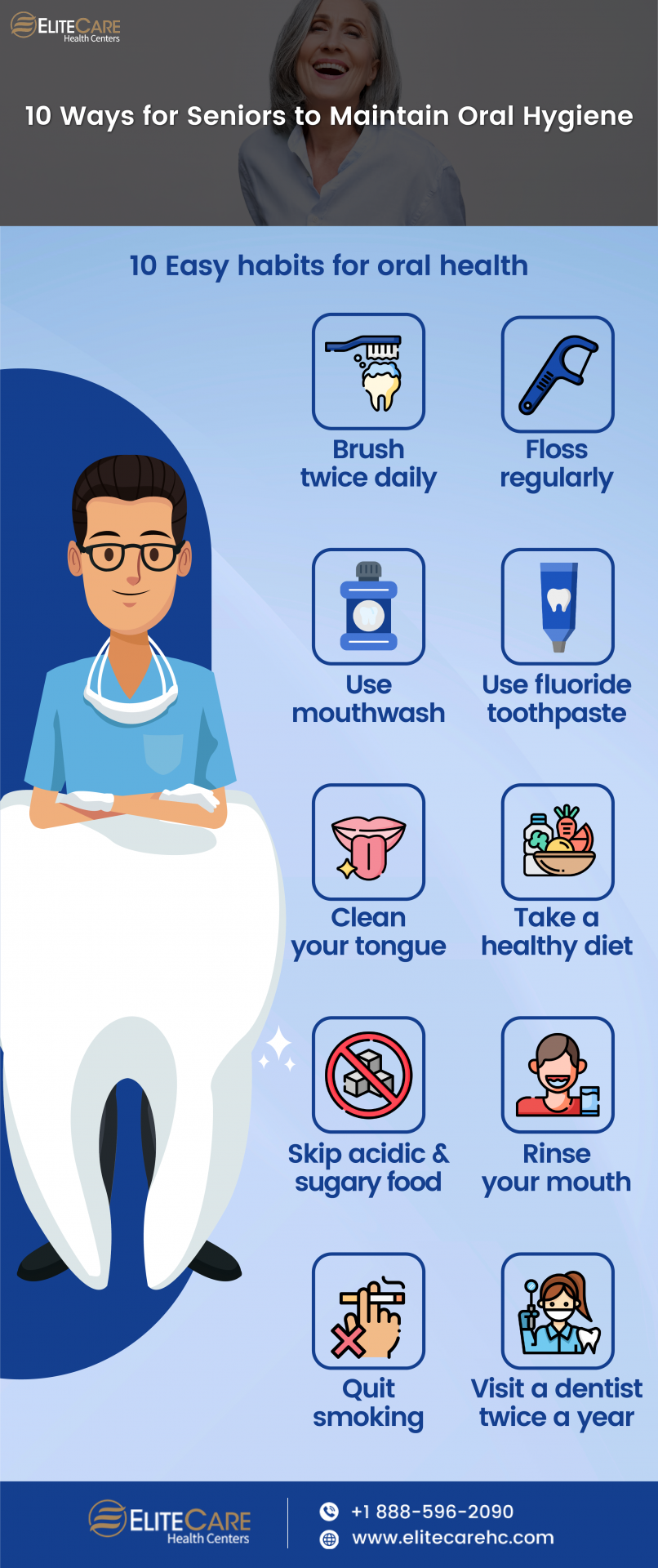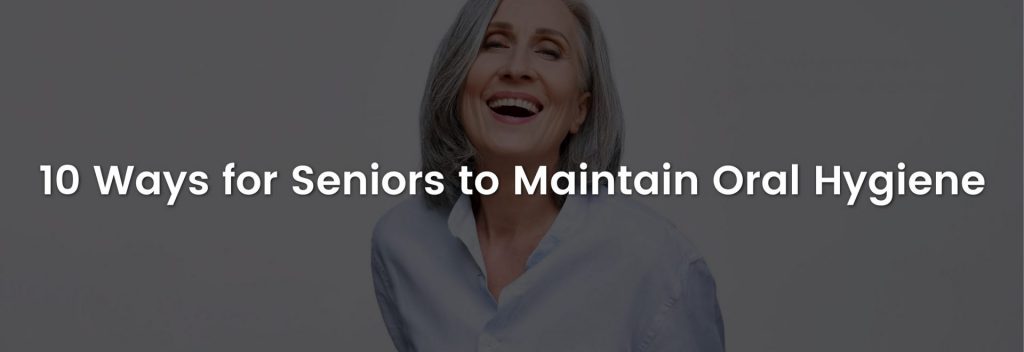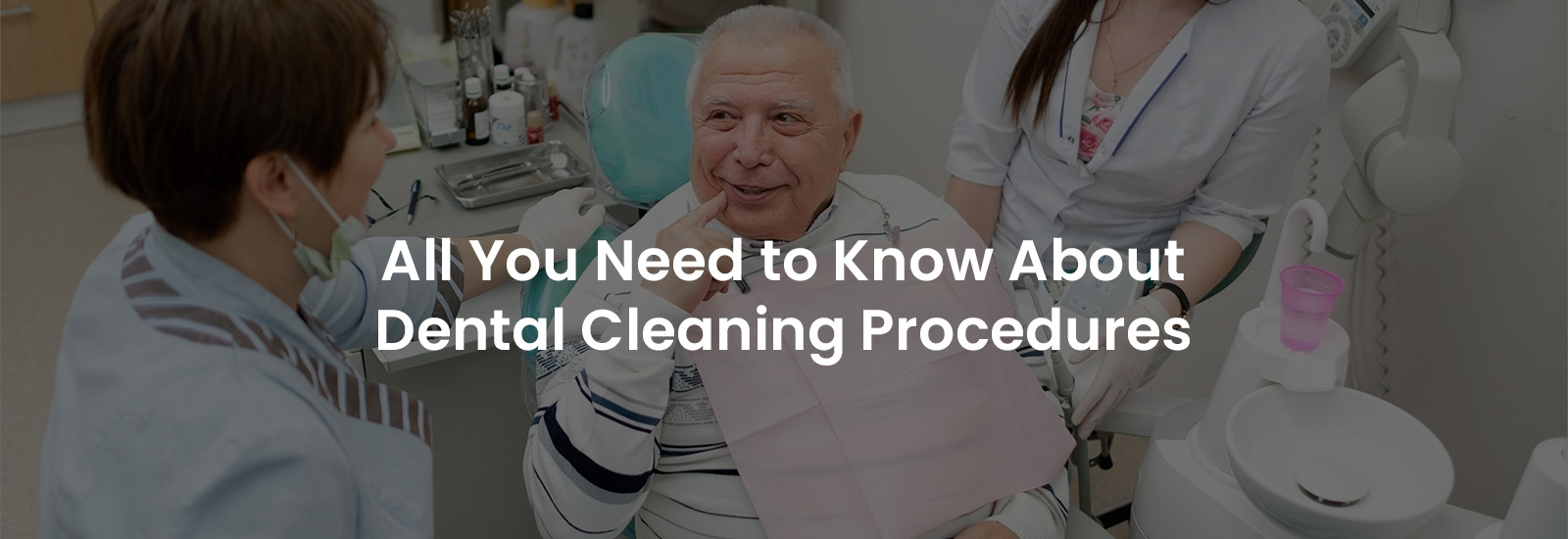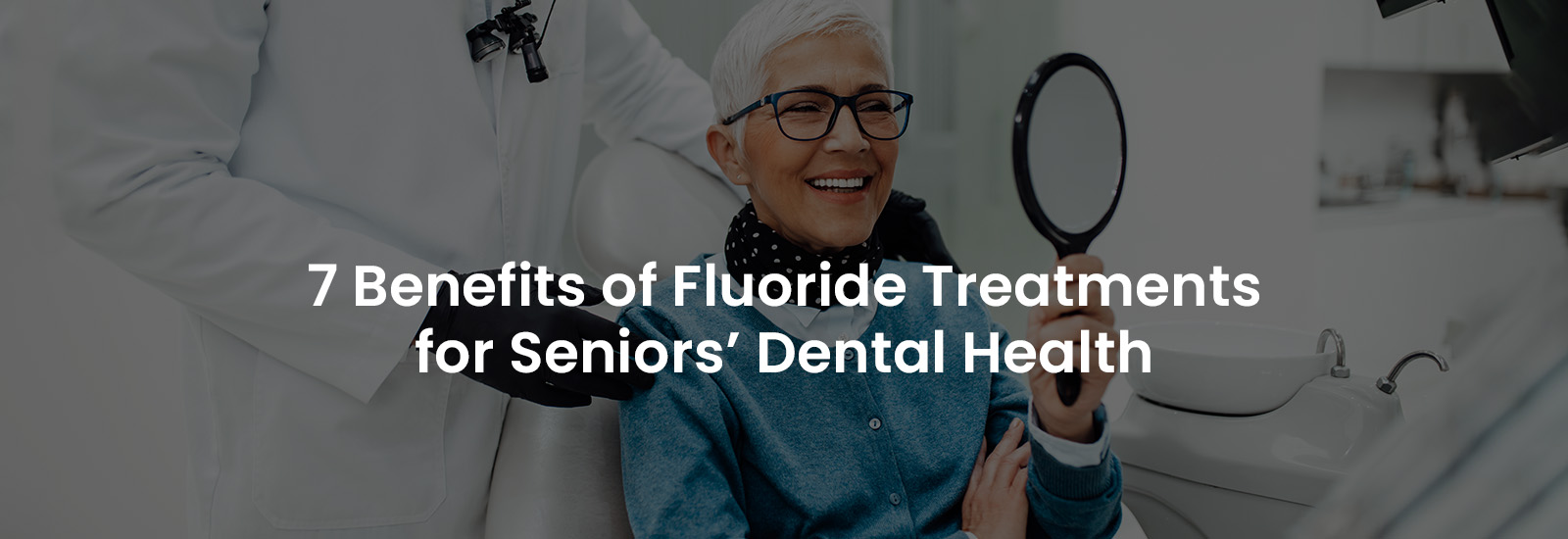
Let’s begin with some data on oral health – a recent report states that 1 in 4 adults, in the United States, have untreated tooth decay, and approximately 1 out of 6 persons, aged 75 or older, have lost all of their natural teeth.
Maintaining good oral health is crucial – not just for obvious reasons like toothache, cavities, tooth decay, gum infection, etc. – but for a variety of other health reasons that you might not expect.
Oral hygiene and related health issues
Food particles that get stuck while we eat if not cleaned properly, remain stuck to your tooth causing bacterial growth in those areas. If the mouth is not properly cleaned bacterial growth starts spreading inside your mouth that can later take the form of plaques and cause infection. They can lead to oral health problems if not treated at the right time.
There are several kinds of oral issues found in elderly people and a few of the common ones are as follows:
- Tooth cavities
- Gum disease
- Tooth loss
- Oral cancer
- Chronic diseases
Without timely treatment, the harmful bacteria from the mouth can enter your digestive and respiratory systems, causing serious damage to your overall health. Oral health conditions and hygiene affect the rest of your body, contributing to some health issues.
- Tooth decay – Losing teeth is a common oral issue faced by the aging population. Untreated cavities and gum issues lead to tooth loss. Multiple teeth loss – having 8 or lesser teeth causes problems with eating habits impacting the intake of a healthy diet for a healthy body.
- Periodontal disease – This is a severe kind of gum infection. Bacteria and plaque around the gums cause infection, leading to decayed teeth and bone deterioration. Moreover, this condition may also become the root cause of several other health emergencies, including risks to the heart and lungs.
- Respiratory illness – The bacteria and infection present in the mouth due to poor oral care, can travel to the lungs and respiratory tracts, causing a lung infection. It can also lead to Chronic Obstructive Pulmonary Disease (COPD).
- Weak immunity – A patient who suffers from gum issues will typically have a weaker immune system and is more susceptible to other infections.
Chronic medical problems in seniors can aggravate dental issues, adding to more complications.
- Oral issues and diabetes – Diabetic patients are susceptible to infection and have reduced resistance power. Therefore, they are more likely to encounter dental issues than the rest. They also face a tough time managing insulin levels if there is even the slightest hint of oral infection. Those suffering from diabetes are prone to developing periodontal disease, which can lead to further health complications.
Read More: 8 Practical Ways to Manage Diabetes in Seniors
- Higher risks in cardio patients – If a person already suffers from a heart ailment and has been experiencing some dental issues – it is best to visit the doctor and seek help right away. Mouth infections must be treated immediately to avoid the risks of them spreading through the bloodstream and to the heart.
Oral hygiene and the overall health of your body are interconnected. Proper dental care is vital for complete well-being, and it cannot be taken lightly. Here are a few easy habits that can enable good oral health
Easy habits for oral hygiene
To keep your teeth healthy and maintain oral hygiene, here are a few simple things you can do.
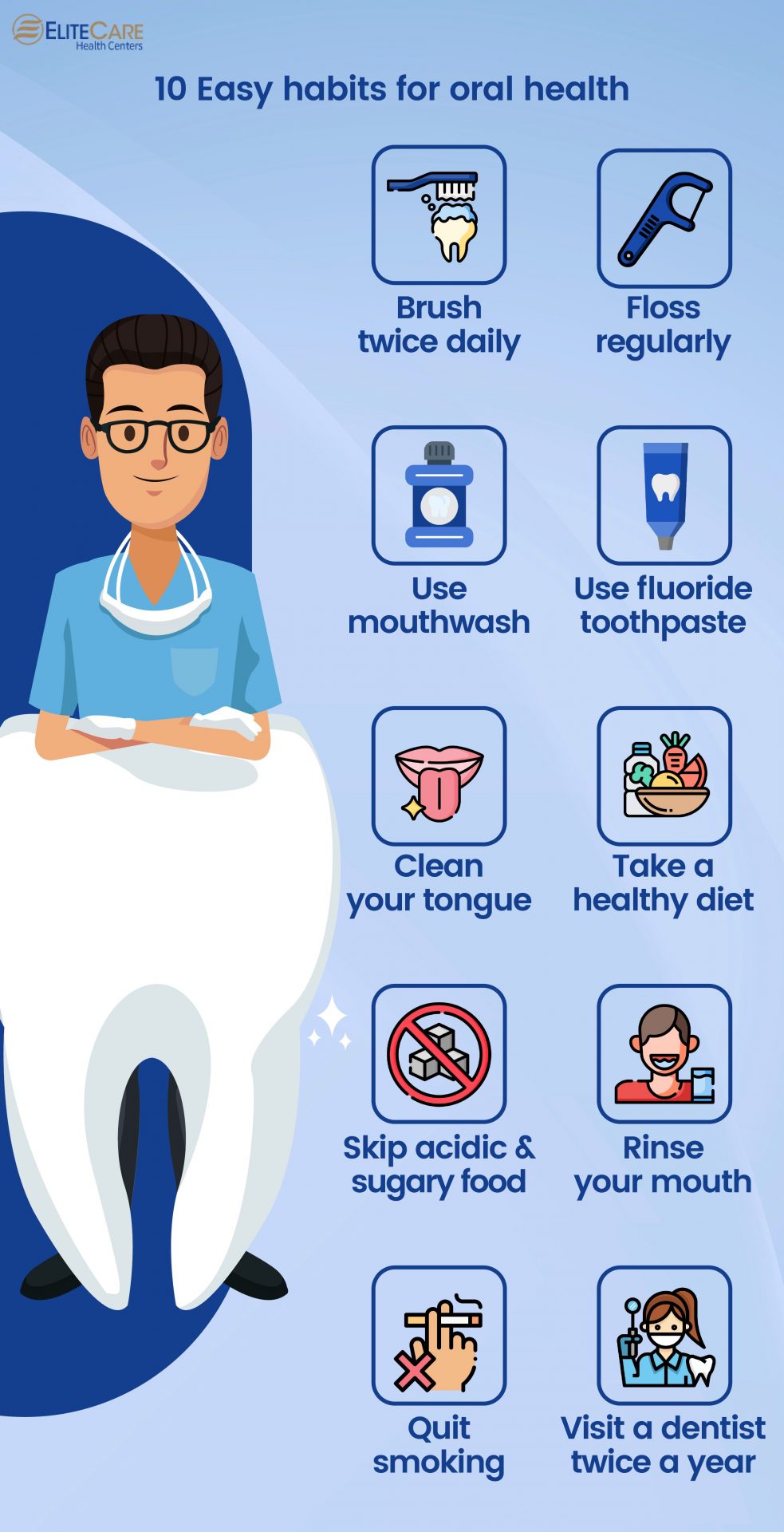
- Brushing your teeth well – Although it is a childhood lesson to brush your teeth twice daily, many adults neglect doing it daily. Brushing at night is a must as the mouth becomes the breeding place for germs and bacteria from the remains of food particles accumulated inside the mouth.
The way you brush is also very important. An improper method of brushing is equivalent to not brushing at all. If you fail to remove plaque and deposits around your teeth, they will harden and cause cavities and gum issues later. Gentle circular movements are the most effective way to get rid of plaque build-ups. While choosing a toothbrush, try getting soft-bristled or electronic toothbrushes as they are ideal for getting your teeth sparkling clean for that healthy smile. - Flossing regularly – Equal importance must be given to flossing. Flossing at times becomes difficult to clean teeth at the back of your mouth and the hard-to-reach places. You can pick up ready-to-use dental flossers, that are available at any drugstore for cleaning up and removing plaques.
- Cleansing with mouthwash – According to the U.S. National Library of Medicine, the Americans using mouthwash daily for oral hygiene is less than 50%. They are vital in maintaining clean oral well-being even if you practice brushing and flossing regularly. Mouthwashes are best for killing germs. Reports states that 99.9% of the germs are destroyed which causes plaque, gingivitis, and bad breath.
- Choose fluoride toothpaste – Pick a toothpaste that contains fluoride in it rather than one that promises whiter teeth or fresh-smelling breath. Fluoride toothpaste is most effective at protecting your teeth and fighting tooth decay.
- Remember to clean your tongue too – The tongue can also be a breeding ground for bacteria formation. If not properly cleaned, they can cause an unpleasant mouth odor. Use a tongue scraper to gently clean your tongue while brushing your teeth daily.
- Follow a healthy diet – Adding the right amount of minerals and vitamins to your diet can win half the battle. Vitamin C and Calcium are key nutrients for keeping the teeth and gums healthy. Eating fibrous food, fresh fruits, and vegetables is also extremely beneficial for oral health. Besides, biting and chewing your food is good exercise for your jaws as well.
Read More: Foods That Help Lower Blood Pressure
- Avoid highly acidic and sugary foods – These types of foods, alcohol, as well as beverages like tea and coffee, erode tooth enamel gradually. Slowly limiting their intake can control the harmful effects they can have on your teeth.
- Rinse thoroughly – Rinsing the mouth after meals is a highly recommended dental practice to keep the bacteria and germs at bay as it helps to wash away food particles and neutralize the acidic content.
- Quit smoking – In addition to causing cancer, smoking can also cause bad mouth odor and discoloration of the teeth.
- Visit a dentist twice a year – You may be brushing and flossing regularly and practicing the best dental hygiene. Still, you may have to visit the dentist. These periodic dental consultations will enable early detection of any oral problem while ensuring no cavities or tartar deposits remain unattended.
When you practice these healthy habits regularly and follow the instructions of your provider, you can be assured of good-quality oral health. Looking for a dental consultation with the best dentists? You can call us at 1-888-596-2090 or visit any of the nearest EliteCare Health Centers to schedule an appointment.
- Tags:dental consultationdental tipshealth and wellness centerhealth and wellness serviceshealth care centerknee pain treatmentmedical cliniconline doctor consultationoral hygienepreventive careprimary careprimary care physicianprimary care servicesprimary servicessenior care serviceswellness care centers
